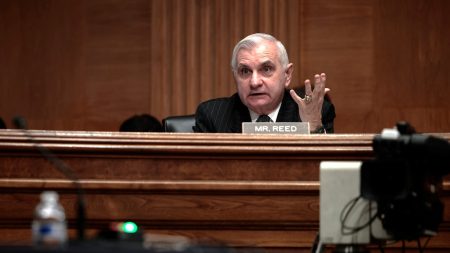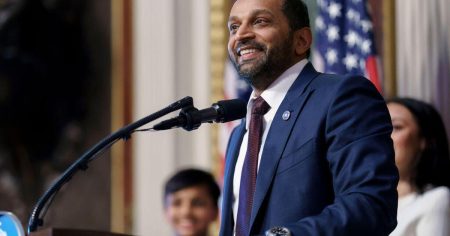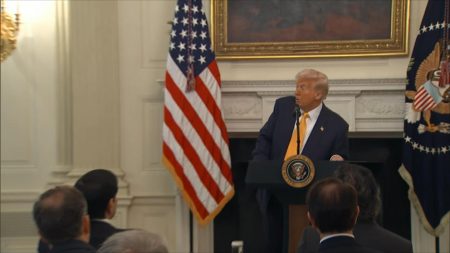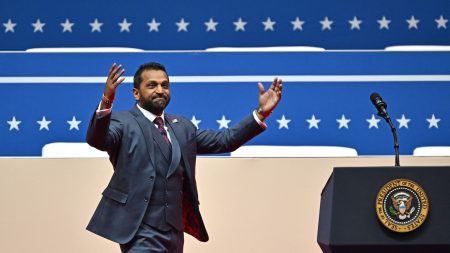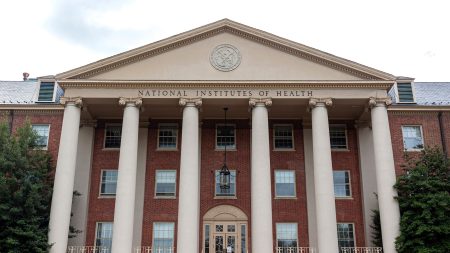Kamala Harris: A Trailblazer in American Politics
Early Life and Education: Laying the Foundation
Kamala Harris was born on October 20, 1964, in Oakland, California, to Indian and Jamaican immigrant parents. Her mother, Shyamala Gopalan, was a breast cancer researcher, and her father, Donald Harris, was an economist. Kamala’s name, derived from the Sanskrit word for "lotus," symbolizes her parents’ deep-rooted cultural heritage. Growing up in a predominantly African American neighborhood in Berkeley, California, Kamala was exposed to the civil rights movement from a young age, which deeply influenced her future career.
Kamala attended Howard University in Washington, D.C., where she majored in political science and economy. Her time at Howard, a historically Black college, further solidified her commitment to public service and social justice. After graduating in 1986, she attended the University of California, Hastings College of the Law, earning her Juris Doctor (J.D.) in 1989. Her educational background provided the foundation for her career in law and politics.
Early Political Career: Rising Through the Ranks
Kamala’s political career began in 1990 when she worked as the Deputy District Attorney in Alameda County, California. She later became the Managing Attorney of the Career Criminal Unit in the San Francisco District Attorney’s Office. Her work in these roles was marked by her tough stance on crime, particularly in handling cases involving sexual assault and homicide. However, her approach also drew criticism, as some accused her of being overly aggressive in pursuing convictions.
In 2003, Kamala made history by becoming the first African American woman to serve as San Francisco’s District Attorney. During her tenure, she implemented innovative programs aimed at reducing recidivism rates, such as the "Back on Track" initiative, which provided young offenders with job training and education in exchange for their participation. This program was widely praised for its effectiveness in reducing crime and helping at-risk individuals reintegrate into society.
Kamala’s success in San Francisco led to her election as California’s Attorney General in 2010. She made headlines during her time in this role by refusing to defend Proposition 8, a ballot initiative that sought to ban same-sex marriage in California. Her decision was seen as a bold stance in favor of LGBTQ+ rights and demonstrated her commitment to equality and justice.
Key Policy Initiatives: Fighting for Justice and Equality
As Attorney General, Kamala focused on addressing some of California’s most pressing issues, including mortgage fraud and climate change. She played a key role in negotiating a $25 billion settlement for California homeowners affected by the foreclosure crisis. Her work on climate change included suing oil companies and pushing for greater transparency in their environmental practices.
In 2016, Kamala was elected to the U.S. Senate, becoming the first African American woman from California to hold the position. She quickly established herself as a vocal advocate for progressive policies, including healthcare reform, immigration rights, and racial justice. Her questioning during Senate hearings, particularly during the Brett Kavanaugh Supreme Court confirmation process, showcased her sharp legal acumen and her ability to hold those in power accountable.
One of Kamala’s most significant contributions during her time in the Senate was her sponsorship of the Marijuana Opportunity Reinvestment and Expungement Act (MORE Act), which aimed to decriminalize marijuana at the federal level and address the disproportionate impact of marijuana enforcement on communities of color. Her support for this legislation highlighted her commitment to criminal justice reform and her willingness to challenge outdated policies.
Presidency and Current Role: Making History
In 2020, Kamala made history again when she became the first African American, Asian American, and female Vice President of the United States. Her candidacy, alongside President Joe Biden, was seen as a significant step forward for representation in American politics. Her swearing-in ceremony, attended by her husband, Douglas Emhoff, and her stepchildren, Ella and Cole, was a moment of profound celebration for many Americans who saw her success as a reflection of the country’s progress.
As Vice President, Kamala has been tasked with addressing some of the most pressing issues facing the nation, including the COVID-19 pandemic, climate change, and immigration reform. She has also been a leading voice in the administration’s efforts to expand access to healthcare and address racial disparities in medical treatment.
One of Kamala’s most notable roles in the Biden administration has been her focus on the root causes of migration from Central America. She has traveled extensively to countries in the region, meeting with leaders and advocating for policies that address the economic and social conditions driving migration. Her efforts in this area have been both praised and criticized, reflecting the complex nature of the issue.
Personal Life and Public Image: Beyond the Politics
Despite her demanding career, Kamala has always prioritized her personal life. She married Douglas Emhoff, a lawyer, in 2014, and became a stepmother to his two children from a previous marriage. Kamala has often spoken about the importance of family in her life, and her relationship with her stepchildren, whom she lovingly refers to as "Momala," has been a subject of admiration for many.
Kamala’s public image is that of a no-nonsense, fiercely intelligent, and deeply compassionate leader. She is known for her ability to connect with people from all walks of life, a skill honed during her years as a prosecutor and politician. Her authenticity and willingness to speak truth to power have endeared her to many, though they have also made her a target for criticism from political opponents.
Kamala’s cultural identity has been a defining feature of her political persona. As the daughter of immigrants, she has often spoken about the sacrifices her parents made and the opportunities they afforded her. Her experiences as a Black and Asian woman in America have shaped her perspective on issues of race, gender, and identity, making her a powerful voice for marginalized communities.
The Future of Kamala Harris: A Legacy in the Making
As Vice President, Kamala Harris continues to be a pivotal figure in American politics. Her leadership on critical issues and her ability to inspire hope in a divided nation have solidified her position as a key player in the Democratic Party. While speculation about her future ambitions, including a potential presidential run, is rampant, Kamala remains focused on her current responsibilities and the challenges at hand.
Kamala’s legacy is already being written as one of a trailblazer who has broken barriers and paved the way for future generations of women and minorities in politics. Her commitment to justice, equality, and public service has left an indelible mark on the country. Whether she runs for the presidency or continues in her current role, Kamala Harris will undoubtedly remain a powerful force in American politics for years to come.
In a career filled with firsts, Kamala Harris has proven time and again that she is a leader of extraordinary talent and resilience. Her journey from a young girl growing up in California to the highest corridors of power in Washington, D.C., is a testament to her hard work, determination, and unwavering commitment to the principles of justice and equality. As she continues to shape the future of American politics, Kamala Harris reminds us all of the power of possibility and the enduring strength of the American spirit.







